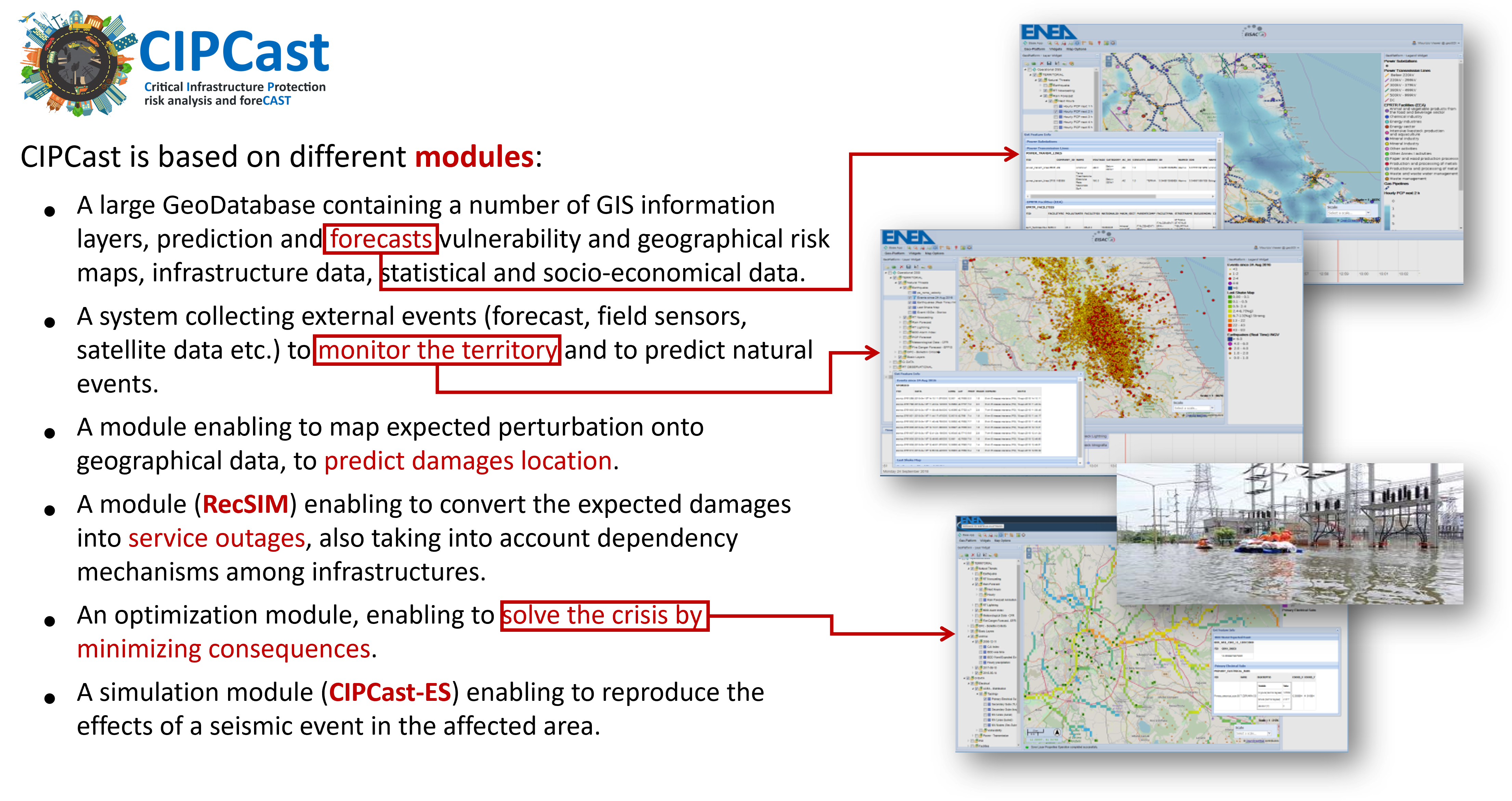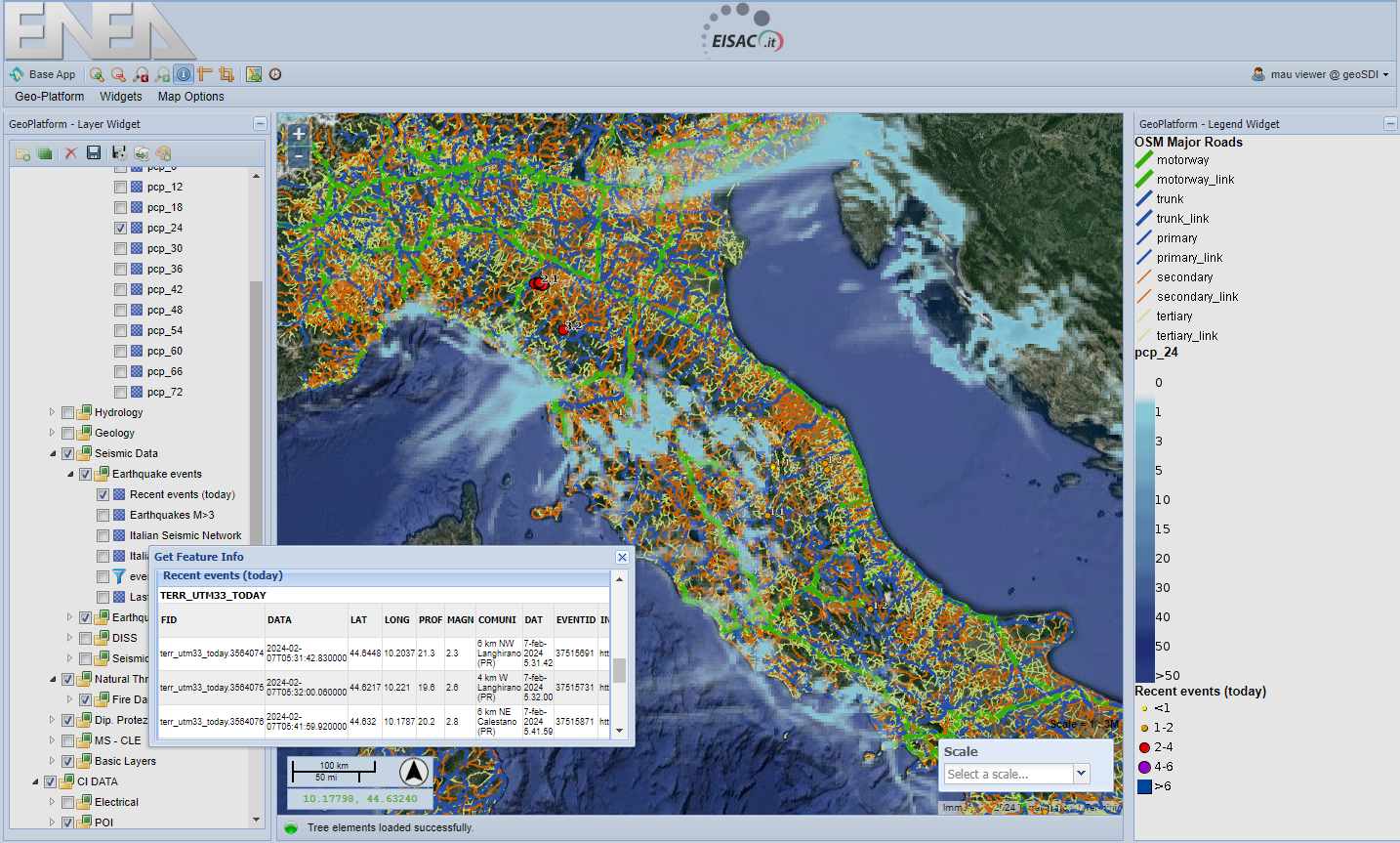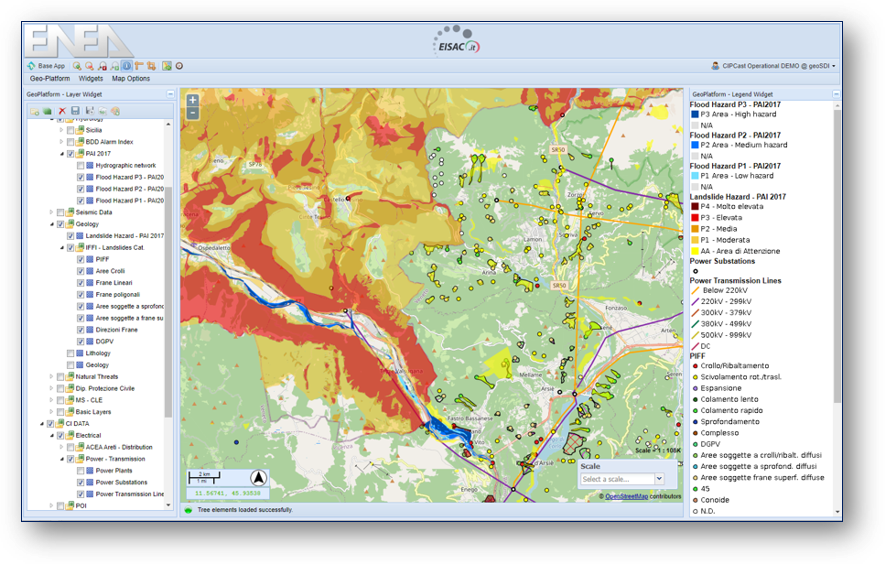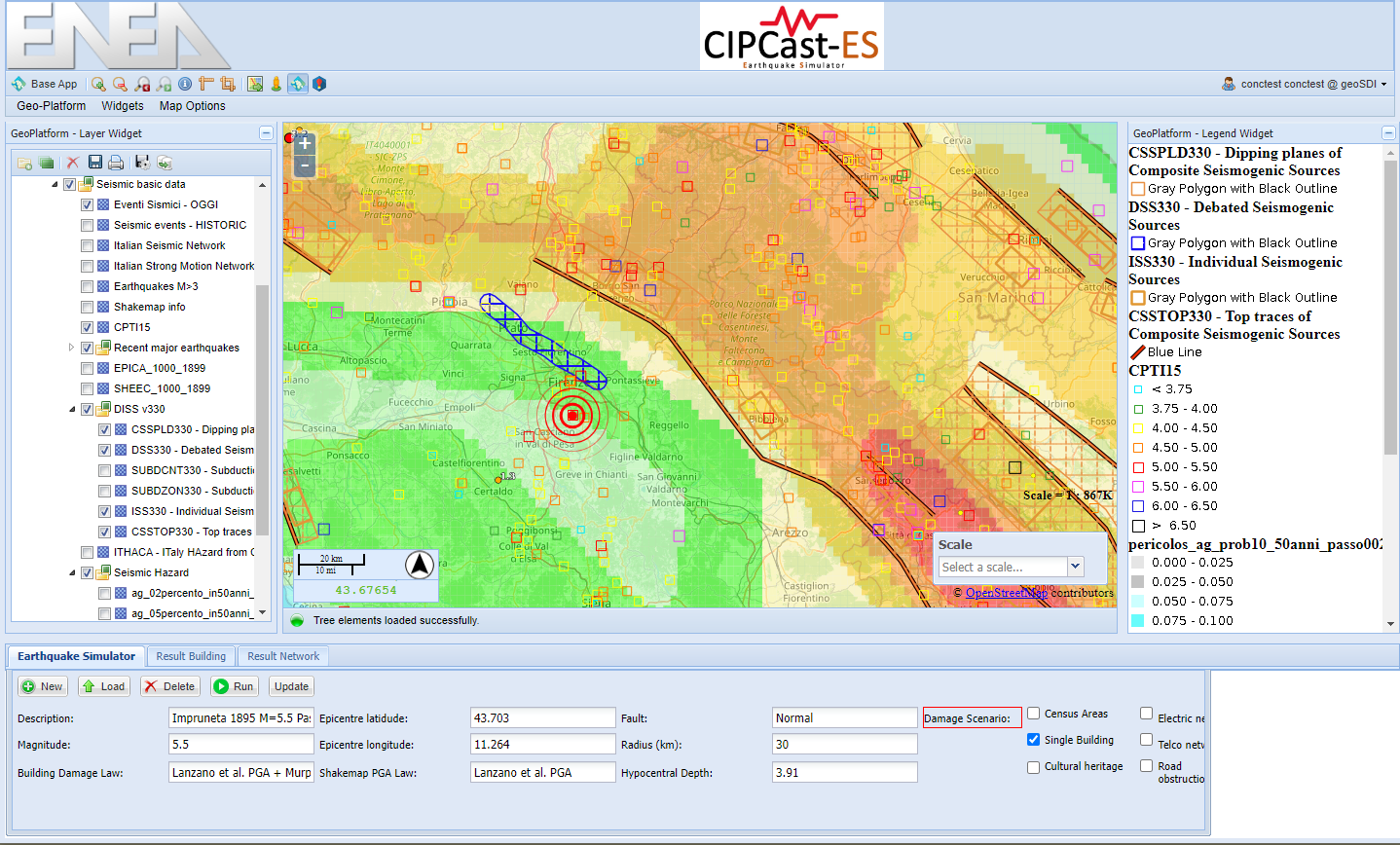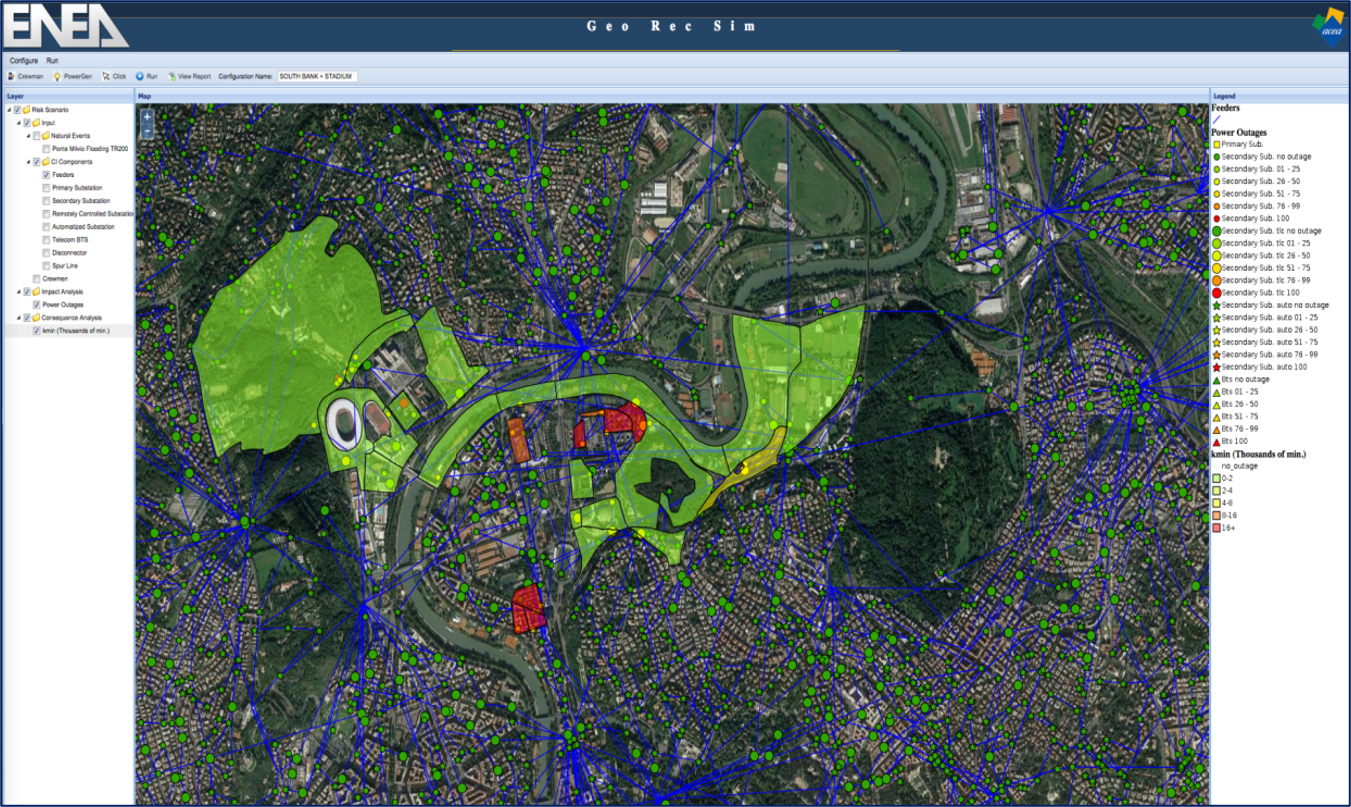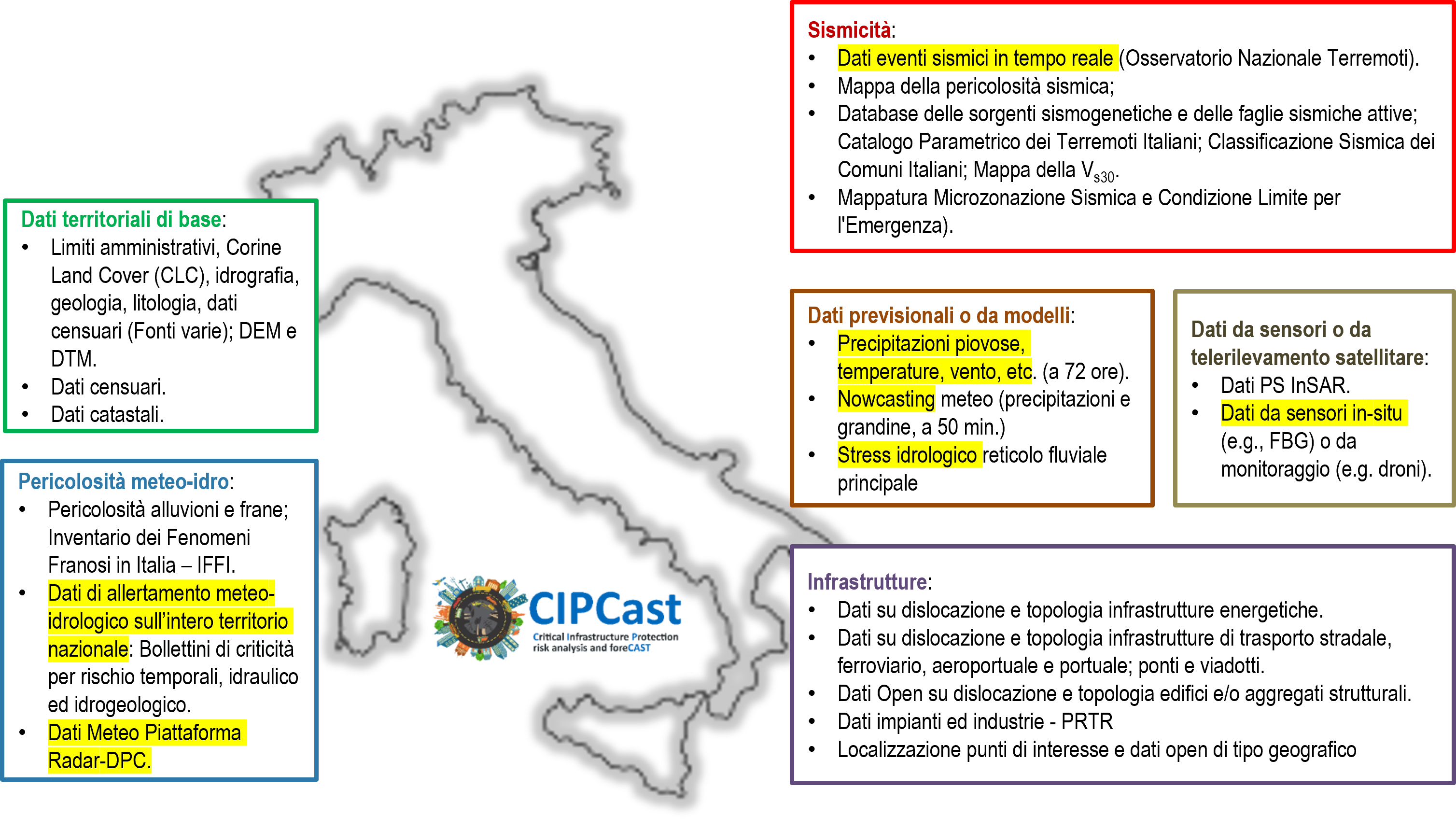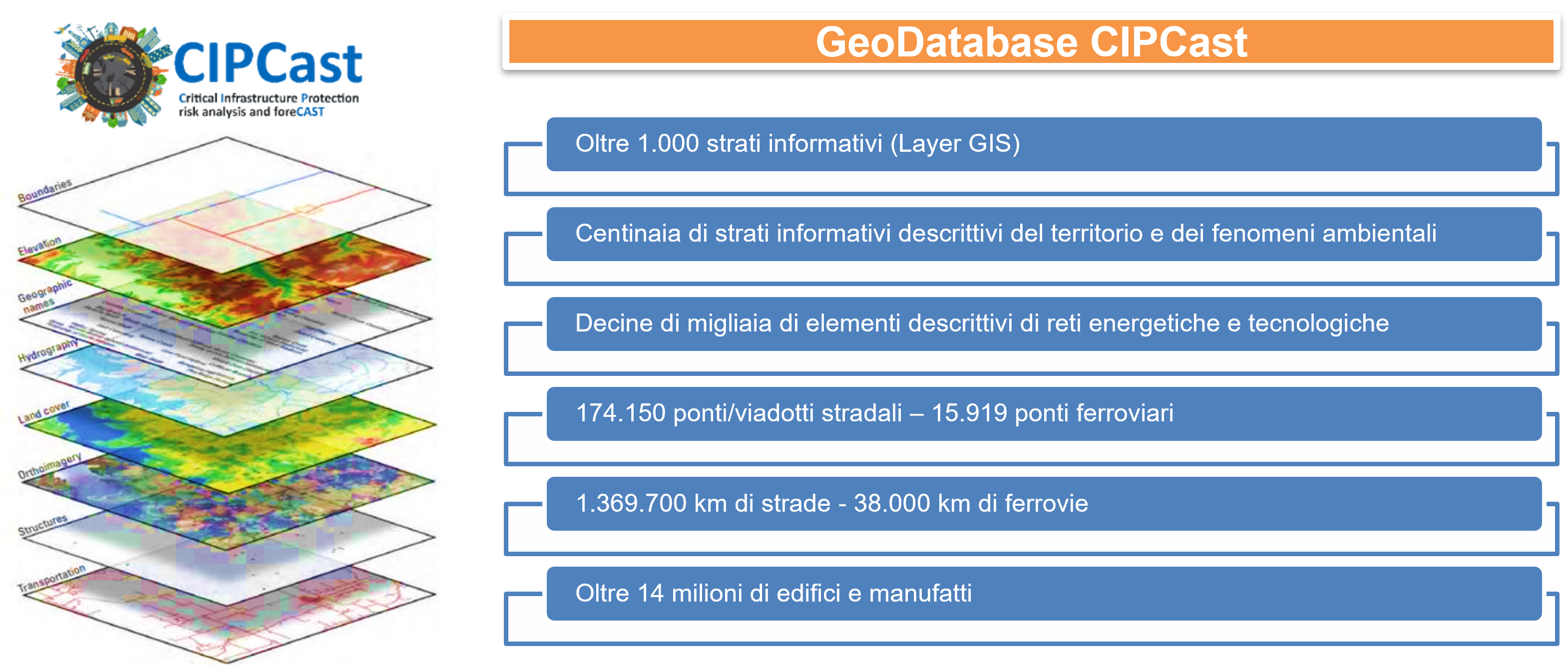CIPCast-OP facilitates 24/7 operational risk analysis by integrating hazard maps, weather forecasts, sensor data, and geospatial information concerning infrastructures and the built environment. It supports the production of event scenarios by combining hazard assessment with CI exposure and specific vulnerability to critical events, thereby estimating induced damages and impacts.
The platform relies on a comprehensive database comprising information layers sourced from various outlets, including open data and private sources. These layers encompass both slowly varying data (territorial, geophysical, census, structural/infrastructure data) and rapidly changing data (weather forecasts and nowcasts, meteo-hydrological criticality, seismic events, and data from field sensors or satellite image processing). CIPCast houses nearly 1000 information layers stored on a Postgres/PostGIS database, accessible through a user-friendly WebGIS interface.
CIPCast supports risk estimations by mapping hazards (as slowly varying data) and threat drivers (as rapidly varying data) within the geographic area hosting critical infrastructures. This enables dynamic risk analysis, alerting operators and public authorities responsible for infrastructure integrity and functionality to current conditions warranting attention. Initially, CIPCast generates a damage scenario, identifying infrastructure elements with a probability exceeding a threshold of being damaged by predicted events.
Furthermore, CIPCast is designed to consider infrastructure dependencies and evaluate the flow of disruptions from one infrastructure to another. By analyzing interdependency dynamics, the platform can identify potential cascading effects. These predictions leverage knowledge of interconnection points, where infrastructures exchange services, whenever such information is available.
Link to CIPcast Operational Application:
CIPCast-OP
